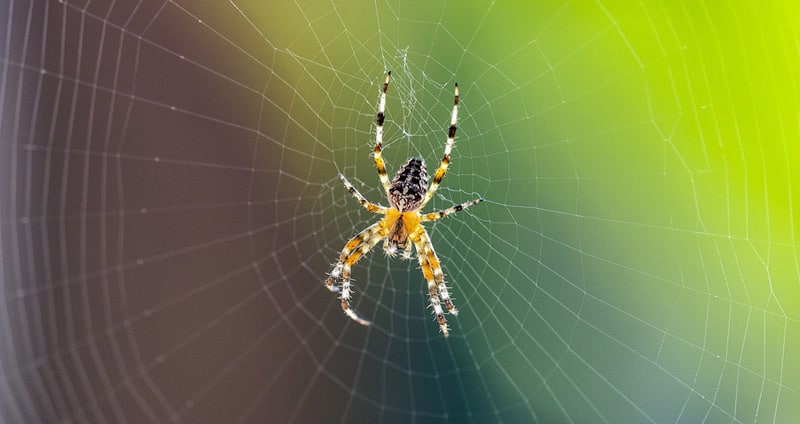Spider webs have been a source of many questions over the years. The intricacy and effectiveness of these webs are mind-blowing. Why, then, do some people say that spiders eat their webs?
Wouldn’t that be a massive waste of effort for these spiders? Surprisingly there’s a very good answer to this question!
Do Spiders Eat Their Webs?
Yes, some species of spider do regularly eat their webs, but it isn’t a universal trait across all spiders. It’s primarily orb web-spinning spiders that partake in eating their webs, while other types of spiders would never think about chowing down on their intricately laid-out silk structures.
Different types of spiders create different types of webs, and all of these webs require different kinds of maintenance. That’s why orb webs are really the only kind that are eaten. That’s right — there’s a good reason behind this strange behavior!
Why Do Spiders Eat Their Webs?
It may not be hard to believe the fact that creating and spinning webs takes a massive amount of energy! A spider’s silk is made up of protein, and an entire web’s worth of silk uses up a large portion of a spider’s protein supply.
When a spider is spinning a new web every single day, you can imagine that that’s not a very sustainable or efficient way to live.
Therefore, a spider will resort to eating their web in order to get the protein back that they lost by initially spinning it. A spider is able to break down the amino acids that make up the protein and send them to their silk glands to turn it into silk again.
This process is absolutely invaluable for many spiders. For instance, if a spider were to spin a web and not catch any food during the day, they’ve used up all of their energy without any type of reward!
This would result in very high mortality rates for spiders. However, the web-eating strategy provides a very nice cushion for these spiders and keeps their act of food catching very efficient.
Why Would A Spider Remake Its Web?
With all of the effort that spiders put into the construction of their web, why in the world would they remake them every single day? Even though a spider is able to gain back most of its lost energy, wouldn’t it still be more efficient to leave the web up for multiple days?
Spiders are quite “smart” creatures and have developed behaviors over millions of years that benefit themselves as much as possible. One of those behaviors is creating their webs in high-traffic areas to increase the chances of them catching passing insects.
However, a drawback of having a web in such a location is the increased chance of something coming along and damaging the web. Over the course of a day, there are several things that can damage a web.
Rain and wind can cause serious damage, insects thrashing about can deform it, and dust and pollen render the stickiness of the thread ineffective.
Because of this, spiders have gotten used to eating their web at the end of a long hunting day before hiding themselves away in a tree, some shrubs, or a small burrow. After spending some time tucked away, they emerge from their shelter and use the protein from the previous day’s web to spin a new one.


Will a spider eat another spider’s web?